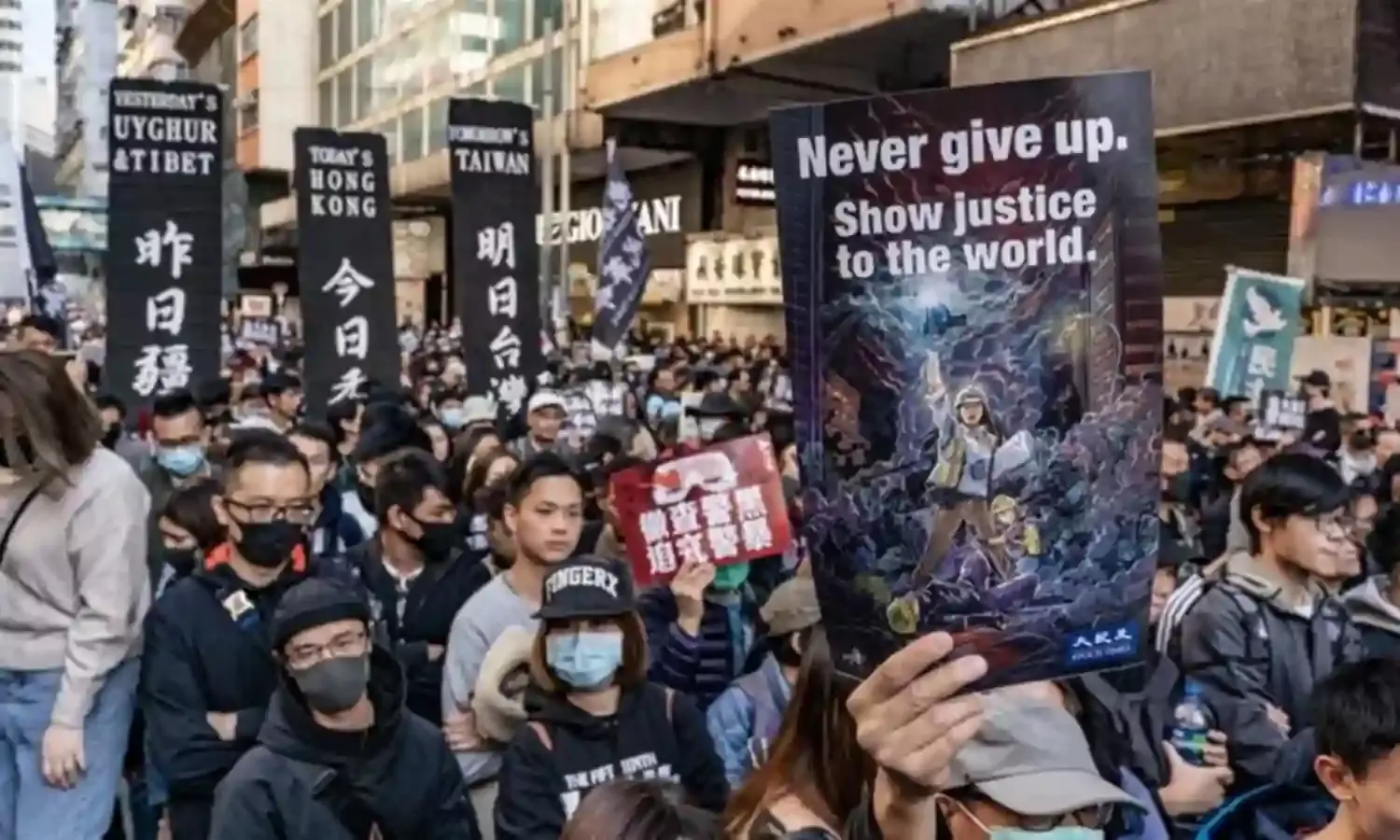Only Some May Speak
Monopolization of conversation

Are the US, China and India fundamentally different from one another? Not when we realize that in all three countries some get to speak while others can’t be heard.
In the US, Trump smartly exploited the coronavirus crisis to monopolize conversation. Day after day, vast numbers of anxious Americans watched him take over the health experts’ briefing and sell his political line.
“Every TV camera is an irresistible magnet for Trump,” someone said, commenting on the President’s unconcealed glee that evening upon evening he was occupying America’s living rooms.
It was only when he proposed injecting disinfectants as a remedy that his minders put a stop to the daily White House show.
Dutifully observing lockdown rules, Joe Biden made occasional appearances (with poor lighting, sound and backdrop) from his Delaware basement. But there was no question whatever of “equal opportunity” for Trump and Biden.
China’s Xi Jinping claims that his country’s vaccines, when developed, will become global public goods. But the people of Hong Kong, whose nonviolent protests (unprecedented anywhere in scale and duration) were pushed off the streets by the virus, must now remain silent.
Not only that. Those behind the protests now face the likelihood of severe punishment.
Moreover, Hong Kong may be more completely soaked up into mainland China. In the US, with the November election approaching, one hundred thousand Americans dying from the virus, and Wuhan irrefutably located in China, Trump’s talking point is simple: “I will put China down more spectacularly than Biden ever can.”
That in the last days of February -- only three months ago – Trump spoke of his wonderful friendship with Xi, and of Xi’s “love for his people”, and praised Xi for his handling of the virus will not only be forgotten by him. It will be denied and dismissed by him, and Trump’s fervent supporters will believe the denial.
But Trump’s task is tough. The videos are there, and the virus is still there. That, however, is not the main point of this piece. The monopolization of conversation is.
In India, commentators still possessing a platform point out that the virus having emptied India’s streets of crowds (except when uprooted workers are forced to walk to their far homes), it has also, in effect, emptied India of politics.
On TV, the radio and most of the print media only one person speaks: Narendra Modi.
Moreover, the warning sent to Hong Kong has also gone out far and wide in India: Be careful with what you say.
As for Hong Kong’s threatened autonomy, we may recall that a sort of autonomy had also been available to India’s state of Jammu & Kashmir until August 5, 2019, when all of a sudden that state was totally taken over by New Delhi, turned into a union territory, and split.
And silenced by a pre-Covid lockdown that included internet curbs which continue in Kashmir, among other things making online schooling impossible there.
When it comes to dealing with “difficult” places and peoples, Xi and Modi can therefore happily exchange stories of success.
Across India, Hong Kong’s pre-Covid protests had been paralleled by a remarkable series of protests against threats to equality and citizenship, protests epitomized by the courageous women who gathered night after night at Delhi’s Shaheen Bagh.
Refusing for months to submit to threats and taunts, India’s protesters finally yielded, as their counterparts in Hong Kong had done, to the virus.
In recent days, India’s police has gone after some of the young women and men who were involved in the citizenship protests and arrested them under extreme emergency laws at a time when no public outcry is possible.
Speech is for some, not for all. That’s the common reality.
Rajmohan Gandhi is a biographer and a research professor at the Center for South Asian and Middle Eastern Studies, University of Illinois at Urbana-Champaign, US. He is the grandson of Mahatma Gandhi and Chakravarthi Rajagopalachari.



